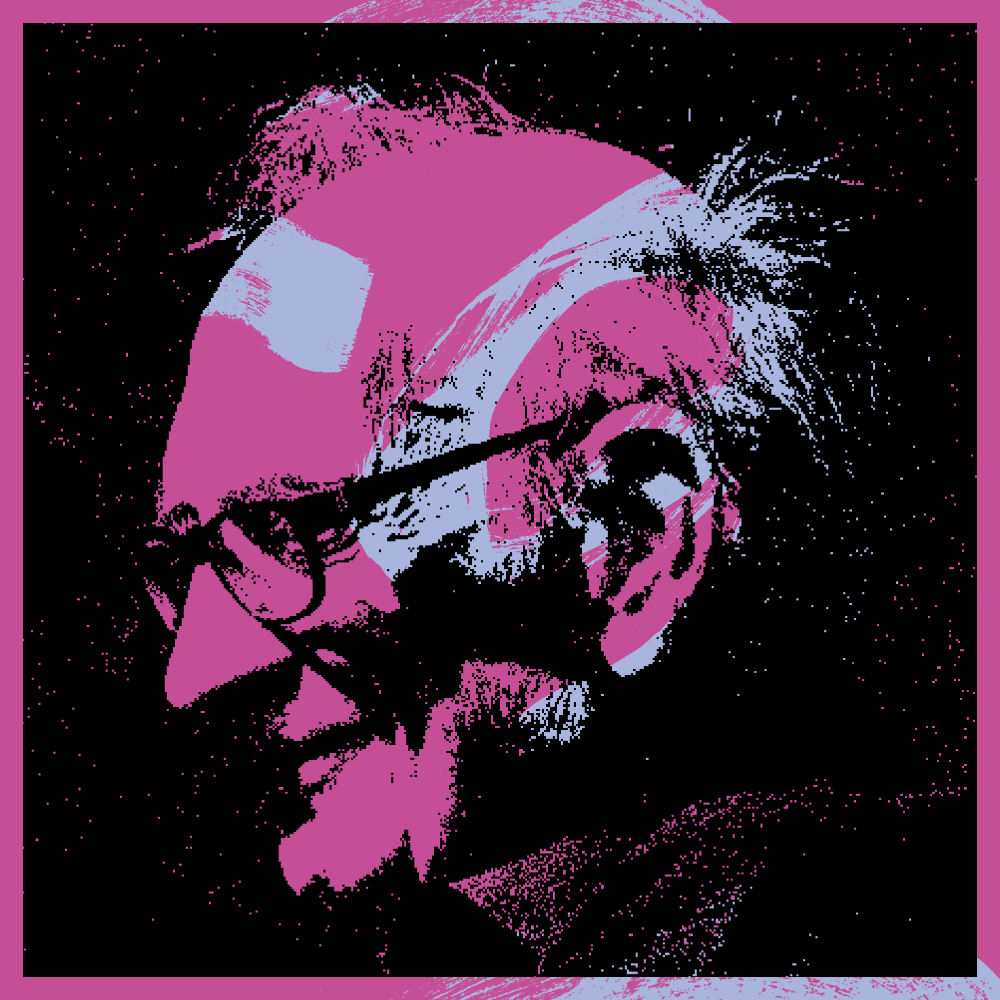Born in 1929, the renowned American composer George Crumb passed away in February 2022. Described by the Los Angeles Times as “the heartbeat of America,” ANAM is delighted to be highlighting this fascinating and highly individual composer at our end of year chamber music festival, The Innovative Spirit of George Crumb.

With a subtle Southern drawl, underscoring Crumb's upbringing and formative years in West Virginia, he was born into a family steeped in music, with both his parents being professional musicians in the Charleston Symphony Orchestra. After completing his early studies at the Mason College of Music and Fine Arts (now the University of Charleston), Crumb studied in Berlin and at the University of Michigan. He went onto teach at the Universities of Colorado and Pennsylvania, holding a long relationship with the later having taught there from 1965 until 1997. Notable amongst his students are the composers Osvaldo Golijov and Jennifer Higdon, both of whom have pieces featured in ANAM’s upcoming festival.
In the pantheon of composers, Crumb stands out as a true trendsetter and maverick of 20th century composition. His works cover a broad range of styles, forms, and influences, which on the surface can seem abstract, reactionary, and quintessentially avant-garde. However, as you delve into his rich output you find that his influences are often some of the great music makers; Bach, Schubert, Chopin, Mahler, Thelonious Monk and even Jimi Hendrix all make appearances in his work. His music shimmers and glistens, celebrating the breadth of musical heritage. Crumb’s music can be serious, dry, and lofty, however many of his works’ comment on contemporary issues and contain a lot of humour. The 1998 work Mundus Canis (A Dog’s World) for percussion and guitar is a prime example. Each movement of this work showcases the personalities of five dogs that Crumb owned. Crumb says in the program note “It occurred to me that the feline species had been disproportionally memorialized in music and I wanted to help redress the balance.” In contrast to this lighter concept is Black Angels from 1970, arguably his masterpiece. Written as a work for electric string quartet, crystal glasses, suspended tam-tam and gongs, the score to Black Angels contains the completion date Friday the Thirteenth, March 1970 (in tempore belli) – Latin for in time of war – referencing the ongoing Vietnam War at the time. Contained within the work are various references to war and death, such as a reference to Schubert’s Death and the Maiden String Quartet, quotations of the Dies Irea melody, the Diabolous in Musica (the tritone interval, the ‘devils interval’) and the Trillo Di Diavolo (the ‘devils trill’ from the Giuseppe Tartini G minor violin sonata).
During a 2007 TV interview, George Crumb eloquently expressed how “Music can be a fusion of so many diverse, almost contradictory elements.” His musical repertoire serves as an authentic testament to the 20th century, showcasing its immense scope and musical poly-culturalism. Crumb drew inspiration from a multitude of sources, including the Western classical tradition exemplified by luminaries like Mahler and Debussy, non-Western influences, the organic sounds of nature, and the burgeoning frontiers of noise and the avant-garde. His expansive musical realm beckons for profound exploration. In his 1980 essay Music: Does it have a future?, Crumb articulated his belief that “Music can never cease evolving; it will continually reinvent the world in its own terms.” His ground-breaking work emancipated the realm of sound, providing subsequent generations with the opportunity to expand their sonic horizons. This influence is seen in the compositions of Jennifer Higdon, such as Quiet Art, where she skilfully blends diverse musical elements to infuse emotional depth into her music, a path initially charted by the trailblazing Crumb. Similarly, Ross Edwards has been captivated by Crumb's vision of music that embraces the natural world, a recurring theme in Edwards' music that often incorporates bird and insect songs.
Don't miss the opportunity to delve into this rich survey of one of the 20th centuries great composers at The Innovative Spirit of George Crumb.
By Evan Lawson.
First published in volume 49 of Music Makers.